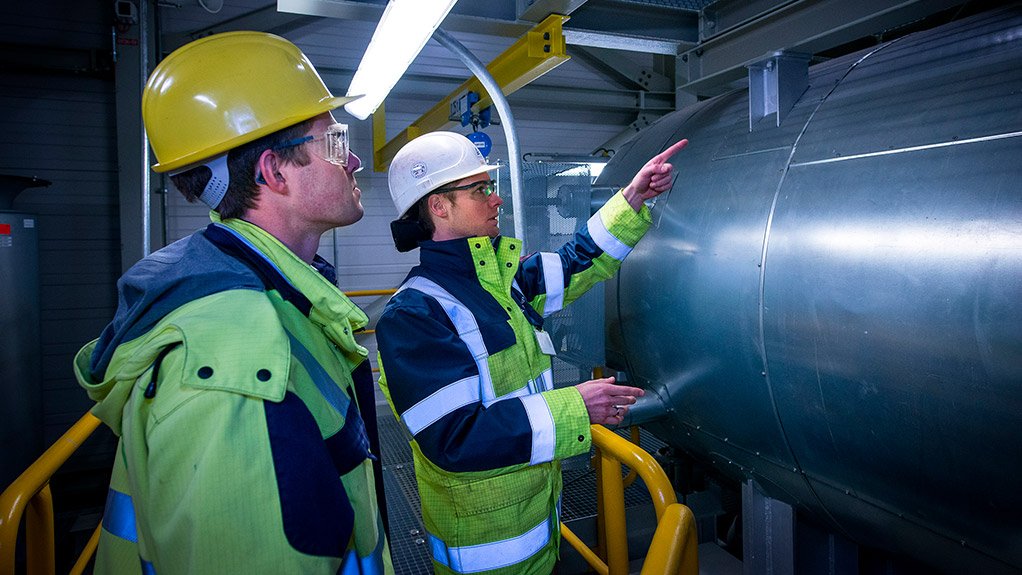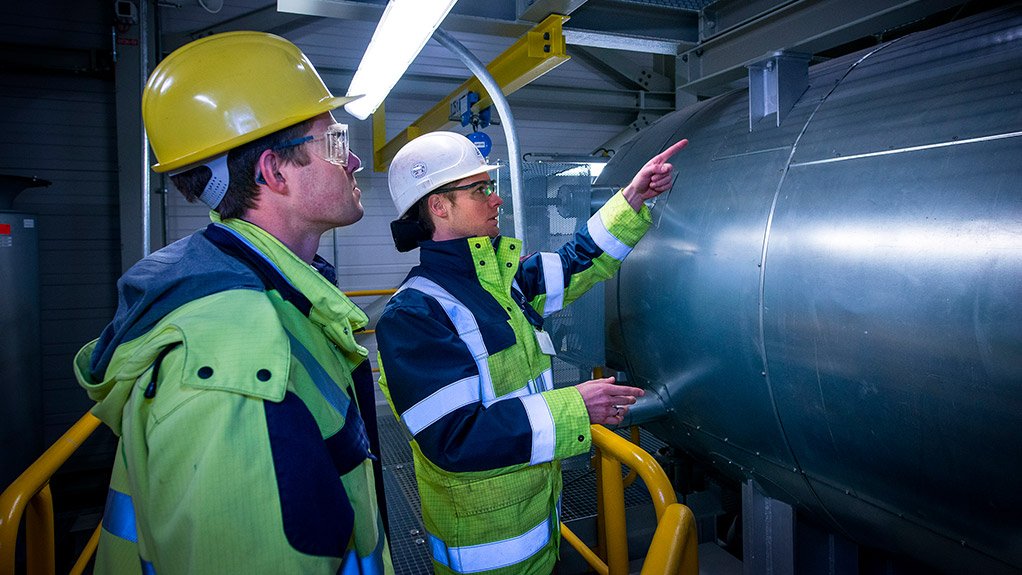Testing, inspection and certification services provider TÜV Rheinland Quality Services South Africa has ensured that the design and fabrication of a new 15-m-long acid gas scrubber for one of South Africa’s largest fuel refineries has met all the quality and safety requirements for pressure vessels.
TÜV Rheinland QC manufacturing inspections technical manager Hudson Ramakulukusha highlights that compliance with the specifications of the American Society of Mechanical Engineers (ASME) boiler and pressure vessel code will ensure that the Secunda-based operator can use the high-quality equipment within South Africa’s legal framework, with the added surety that the required steps have been taken to mitigate against explosion risk.
The column was manufactured in Germiston and the inspection process drew on the requirements of the national pressure equipment regulations and international health and safety standards. Independent design verification was undertaken by a professional engineer registered with the Engineering Council of South Africa and included a review and approval of the quality-control plan and material certification, material identification and an examination of material cut edges and heat-affected zones.
In addition, the welding procedure specification and welder performance qualification certificates were verified, and an inspection of the weld preparation, fit-up and welding quality was undertaken. A review and approval process of all nondestructive testing that was implemented followed, including radiographic, penetrant and ultrasonic testing, as well as an assessment and approval of heat treatment charts. Workshop hydrostatic pressure testing was also conducted before the verification and signing of the certificate of manufacture.
Keeping Current
Ramakulukusha notes that quality standards are dynamic, changing constantly as manufacturing and testing technologies and methods advance. He points out that, this year, ASME codes have been updated from the 2015 editions to the 2017 editions, affecting the methods of inspecting in the manufacturing industry, as well as in many in-service situations.
“Testing, inspection and certification bodies are essential in ensuring that statutory regulations are adhered to. Standards allow for uniformity in all industries, based on specific codes, while international recognition facilitates easier importing and exporting practices, as well as international investment opportunities. It is the prerogative of the testing, inspection and certification body to adjust its method of inspection to ensure that it suits the new revision of a standard to ensure manufacturers keep pace with quality and safety requirements.”
TÜV Rheinland Group South Africa offers an extensive range of testing, inspection and certification services and is a registered approved inspection authority with the Department of Labour. Ramakulukusha notes that testing, inspection and certification practices in South Africa compare favourably globally, as the need for quality and safety in locally manufactured products has become paramount for international acceptance.
“With high demand for a quicker pace to get products to consumers, manufacturers can be tempted to overlook quality and safety defects, but this can lead to dissatisfied customers or, in some cases, serious injury. Ensuring the quality and safety of all products is key, hence, the proliferation of standard codes that are being released in South Africa for all industries.”
However, while South African national standards are internationally recognised, Ramakulukusha notes that they are not respected as much as European standards, especially in the case of product certification. Consumers are, thus, increasingly sending their products to labs in China, Taiwan and Germany to have them tested for compliance to the respective code.
“In a competitive global market, South Africa needs to make sure that the enforcement of standards remains a key priority. Meeting the requirements of constantly updated standards that are implemented as a result of legislation shifts is a challenge, but it can be done.”
He points out that compliance with the International Organisation for Standardisation’s quality, environmental and occupational health and safety management system standards was, for example, made mandatory so that companies could become eligible for tenders in South Africa, and this has driven widespread implementation of the standards across industries.
“TÜV Rheinland is committed to helping to drive safety, quality and efficiency in all South African industries, while establishing and maintaining the harmonious relationship between man, technology and the environment,” Ramakulukusha concludes.
Edited by: Zandile Mavuso
Creamer Media Senior Deputy Editor: Features
EMAIL THIS ARTICLE SAVE THIS ARTICLE
ARTICLE ENQUIRY
To subscribe email subscriptions@creamermedia.co.za or click here
To advertise email advertising@creamermedia.co.za or click here















